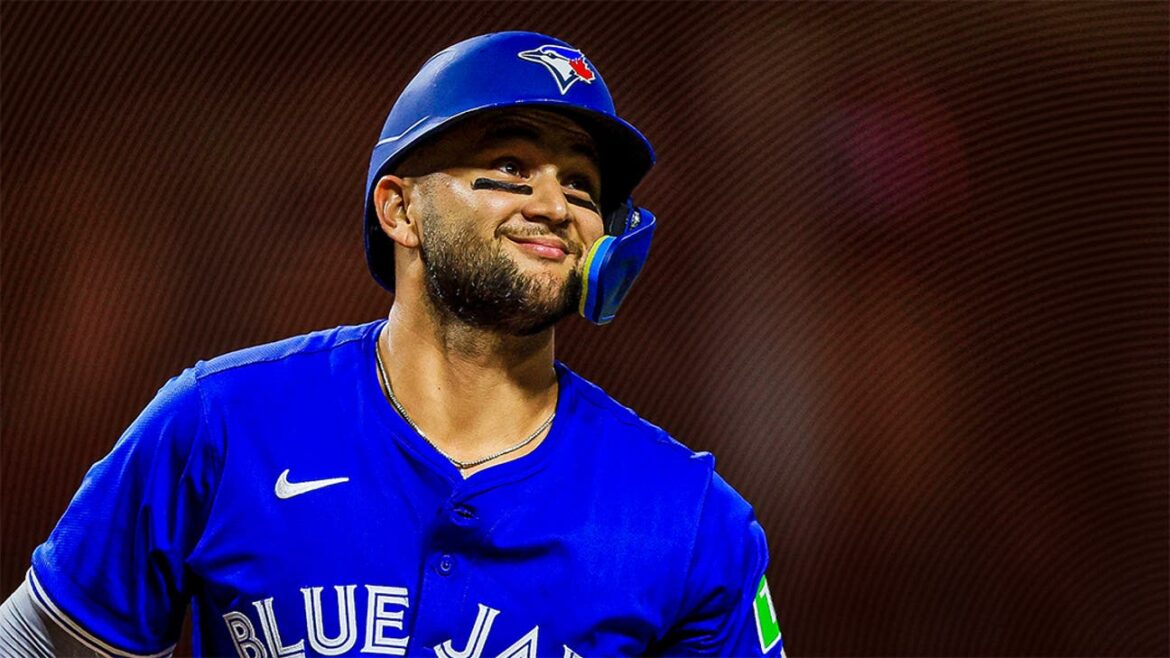Signing Bo Bichette as a pricey free agent doesn’t exactly jibe with David Stearns’ run prevention vision for the Mets' offseason. But adding the elite hitter to play second base certainly would enhance the club’s run production – wait until you see Bichette’s numbers with runners in scoring position – and jolt the core, if such a thing is top of mind in Queens.
So should the Mets look at bringing in Bichette, who turns just 28 in March, as a big-splash move? Or are there too many complications in what already needs to be a hyper-busy winter?
After all, there is much pitching work to be done, both in the rotation and the depleted bullpen, as well as finding more offense, figuring out center field, and retaining (or not) Pete Alonso and Edwin Díaz.
Let’s look at the pros and cons of signing Bichette…
PROS
Plain and simple, Bichette, who has spent his entire career with the Blue Jays, is a hitter. His .294 career average is fifth among active players and he batted .311 in 2025, second in the AL to Aaron Judge. He was one of only seven qualified MLB hitters to bat .300 or better. Bichette played in 139 games and had 181 hits, which was also second in the league. He’s led the AL in hits twice and finished in the top six in batting three times.
He’s got extra-base pop, too – he had 44 doubles (second in the AL) and 18 homers last season and has hit as many as 29 home runs in a season.
Bichette also appears to be evolving as a hitter, trimming his strikeout rate while increasing his walk rate. He had a down year in 2024, but got his strikeout rate down to 19 percent, at the time the lowest of his career. As he soared in 2025, he got his K-rate to 14.5 percent, by far the best of his career and well below the MLB average of 22.2 percent.
He’s below-average at walking, but his 6.4 percent rate in 2025 was the best of his career.
Whatever you believe about the clutch gene, Bichette seems to have it. Had Game 7 of the World Series ended differently, they’d be writing songs in Canada about Bichette’s early three-run homer off Shohei Ohtani.
In 2025, Bichette led all qualified MLB hitters in average with runners in scoring position (.381) and had a 1.053 OPS in those situations, which was third-best. Lifetime, Bichette has batted .330 with a .904 OPS — a long track record of production.
For all the handwringing last year over the Mets and RISP, they batted .260 (eighth in MLB) with an .805 OPS (third). Adding Bichette, obviously, would figure to be a boost in that department, as well as the offense overall.
Bichette was on a two-month heater when he hurt his knee in September, which kept him out of the postseason until the Fall Classic. He was hobbled in the World Series, but still produced, going 8-for-23 (.348) with six RBI. Give him points for clutch, give him points for grit.
He also showed a willingness to switch positions. With Andrés Giménez starting at shortstop, the only defensive position Bichette has ever played in the majors, Bichette played second base five times. He looked comfortable there, perhaps foreshadowing his next role.
CONS
Is second base really a need for the Mets? They seem to have plenty of options, including Jeff McNeil, who had 79 appearances there last season. Luisangel Acuña, Ronny Mauricio, and Brett Baty could figure into the position as well. Plus, one of the Mets’ best prospects, infielder Jett Williams, would fit nicely there, too.
Signing Bichette likely blocks the advancement of those players. But who knows what chain reactions could follow, should the Mets add Bichette.
If the Mets do want to change their core and they signed Bichette, they could move McNeil in a trade. But they could also switch up the core by letting Alonso depart as a free agent, which, theoretically, would also help run prevention, assuming their new first baseman is a better defender than Alonso.
Bichette got the $22.025 million qualifying offer from Toronto, which he is sure to reject, meaning the Mets would lose their second-and fifth-highest selections in the 2026 MLB Draft if they sign him (or another player who rejects the QO). Bichette has also said he wants to remain in Toronto and, while that could be the typical free agent-speak, he and Vladimir Guerrero Jr. —two homegrown stars taking another run at a World Series title — is a narrative with a nice, ahem, ring to it, no?
Then there’s the cost. Bichette should get a big contract and the Mets have to spend first on pitching, don’t they? MLB Trade Rumors estimated Bichette would get $208 million over eight years, and ESPN predicted a five-year, $130-million deal. Both would be for $26 million per year.
VERDICT
Signing Bichette would be a bold stroke of roster construction by the Mets and also trigger other moves that would significantly reshape the team. That could be just what the Mets need after the crushing disappointment of the 2025 season.
Bichette’s mega-hits profile would add significant depth to a lineup that sometimes struggled beyond the "Fab Four" last year. That sounds pretty appealing, too.
Maybe it’s just fun to think about. But it’d be fun to see if the Mets could make it jell with run prevention.
